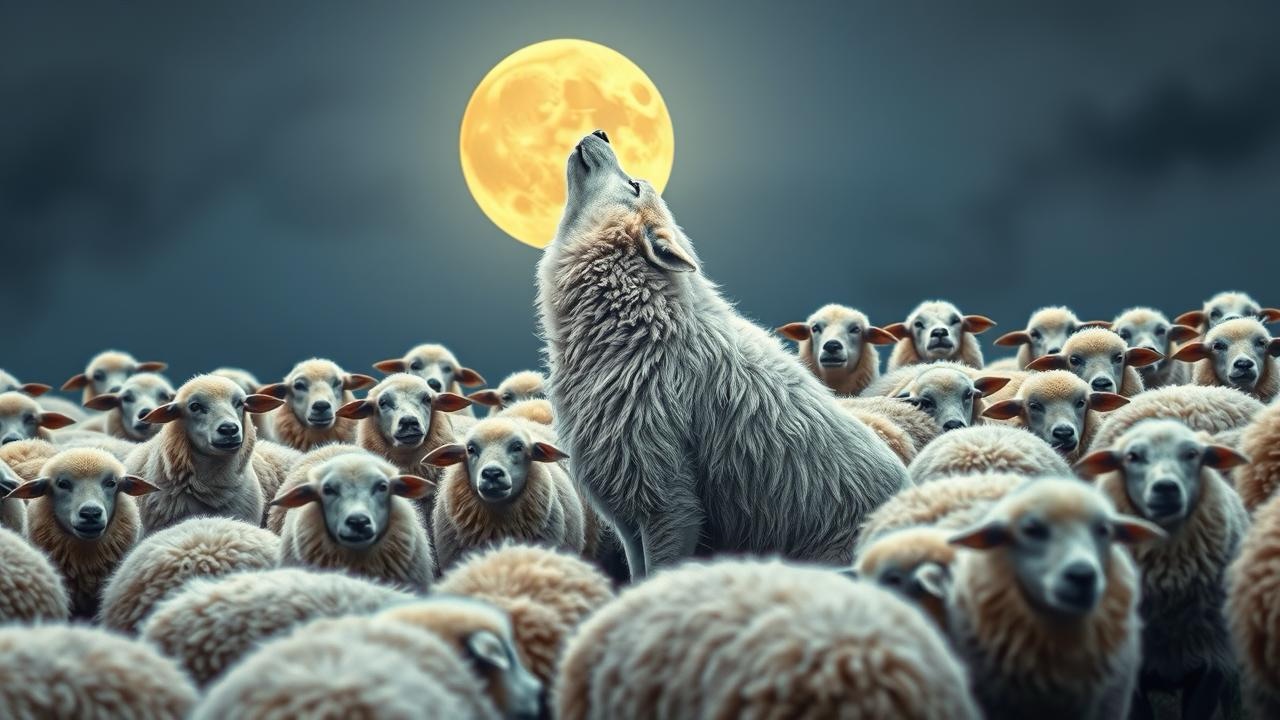In a valley so wide, where the green grasses grew,
Lived a wolf who was lonely and didn’t know who.
His name was young Wally, a wolf with a dream,
To be part of a flock, not as scary as he seemed.
“Oh sheep,” Wally sighed, “how you graze and you bleat,
How I wish I could join you and nibble some wheat!
But alas, I am wolfish, with sharp teeth and claws.
They run when they see me, without any pause.”
One day in the meadow, he spotted a coat,
A bundle of wool someone left near a goat.
“I’ve got it!” said Wally, his eyes opened wide.
“I’ll wear this disguise, and I’ll blend right inside!”
With a hop and a skip, he put on the disguise,
A sheep in his heart, now a sheep in their eyes.
He practiced his “baas” and his clumsy sheep walk,
Then he strolled to the flock, where he joined in their talk.
“Hello there, young lambs!” Wally said with a grin.
“My name is Woolfred. May I join your kin?”
The sheep weren’t so certain, he looked a bit tall,
But his wool was so fluffy, they welcomed him all.
Days turned to weeks, and Wally fit in,
Grazing the grasses and guarding his kin.
But trouble was brewing, danger was near,
For a band of sly foxes crept close without fear.
They lurked in the shadows, they plotted and schemed,
Their teeth were much sharper, their eyes always gleamed.
The sheep never noticed, so gentle, so sweet,
But Wally could smell them, he sprang to his feet!
“Dear flock, there’s a danger! It’s foxes I see!
Quick, run to the barn! Stay safe there with me!”
But the sheep were all frozen, not knowing the plan,
Till the shepherd arrived, a kind, caring man.
Wally turned to the shepherd and let out a howl.
The man looked surprised, then furrowed his brow.
“You’re not a real sheep, now what’s this charade?”
But Wally just pointed where the foxes had stayed.
The shepherd, now seeing the truth in his gaze,
Helped Wally protect them, to everyone’s praise.
The foxes retreated, their schemes all undone,
And Wally stood tall, his disguise now for fun.
The flock grew to love him, the shepherd did too,
For a wolf who wore wool had a heart that was true.
From that day forward, he guarded the field,
A hero in wool, with a shield that won’t yield.
So if you feel different, remember young Wally,
Sometimes being yourself turns a story quite jolly.
For it’s not what you look like, but what’s in your heart,
That makes you a hero, right from the start.
